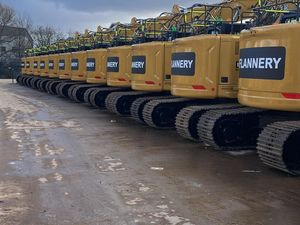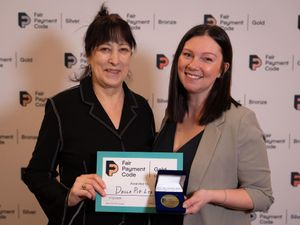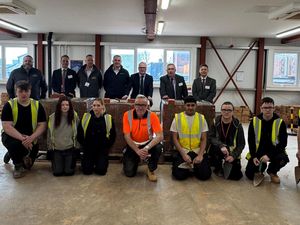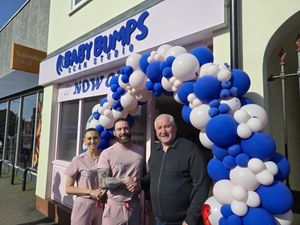Why businesses in the West Midlands are turning to alternative financing to fuel growth
Dave Atkinson, regional director for the West Midlands at Lloyds Bank, explains why firms are looking for options like asset finance loans to fund investment and minimise impact on working capital, and to support their growth ambitions.
Businesses' confidence in the West Midlands is maintaining positive momentum. Our latest Business Barometer found that the region’s firms are amongst the most optimistic in the UK, with overall business confidence reaching 56 per cent last month. This was partly driven by higher confidence in their own prospects, which increased by an encouraging 15 points to 58 per cent.
The saying goes that ‘confidence is key’ and in my experience, elevated confidence certainly helps to stimulate investment and growth plans amongst local business leaders.
We know that firms often want to invest in equipment to propel their growth, but often, they’re reluctant to tie up capital. And that’s why, more firms are considering financial products – like asset finance – to help fuel their growth plans.
Also known as hire purchase, asset finance allows businesses to purchase products or machinery without disrupting cash flow.
This allows businesses to access the tools they need to unlock growth in their business, without impacting the cash flow they need to maintain their day-to-day operations. What’s more, these assets are paid-off over their lifetime, rather than by paying cash up-front, with fixed regular payments helping with budgeting.
Further working capital support is also available before the asset has even arrived. Capital import finance supports purchases where the asset has stage payments during the build and shipment phase. Available on both domestic and overseas purchases, it eases working capital earlier in the processes and helps mitigate risks around these transactions.
And more local firms are realising the benefits and flexibility this can offer. Cannock-based manufacturer Linecross for example, has used funding facilities from Lloyds Bank to purchase a range of state-of-the-art plant machinery to not only extend its capacity, but also provide a broader process offering, enhanced productivity, quality, and reliability as well as energy efficiency.
The investments include such items as two large Cannon vacuum-forming machines with two fve-axis CNC machines. And, with the machinery purchased from Europe and paid for before delivery, Linecross used asset finance, trade finance, a capital import finance facility and invoice finance totalling £10.5 million, to help support its cashflow to ensure healthy working capital and headroom are maintained.
But it’s not all about growth. The demand for asset finance is also helping businesses to invest in more sustainable operations – and again, Linecross has done just this. The firm installed 914 solar panels across its manufacturing site in Rutland, capable of generating 325,000 kiloWatt hours annually, saving over 60 tonnes of carbon dioxide each year, as well mitigating a proportion of the recent energy cost increases.
This willingness to use alternative routes of funding and continue investing is helping local firms to achieve their growth ambitions. And that can only be a good thing.





